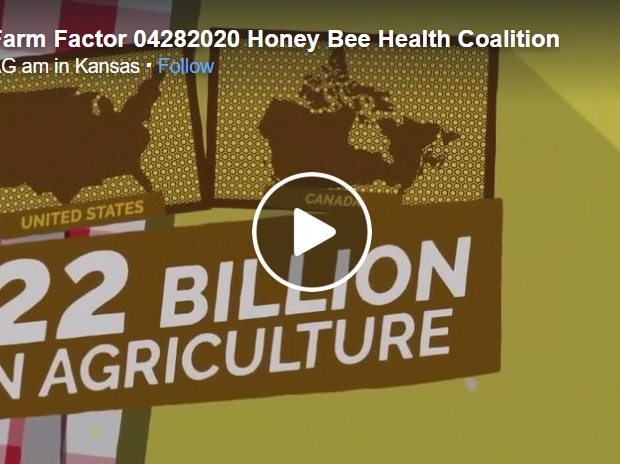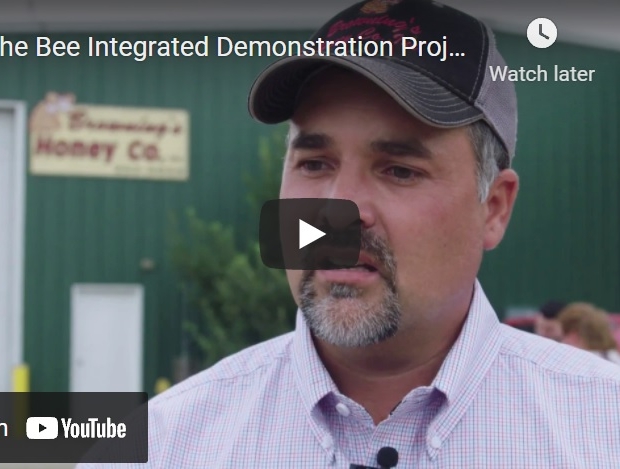News
Coalition Promotes Communication, Cooperation to Support Pollinator Health
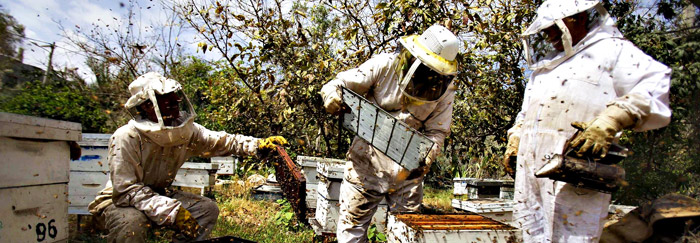
The Honey Bee Health Coalition continues to promote collaboration to support pollinator health across North America. The Coalition provides an essential forum for the food, agricultural, government, and conservation sectors to work together to promote the long-term health of honey bees and other pollinators.
The Coalition’s work continued throughout the first quarter of 2016 and included connecting with thousands of agricultural stakeholders at the 2016 Commodity Classic, the American Farm Bureau Annual Convention, and other trade shows. The Coalition also hosted a widely attended symposium in Washington, D.C., to support state-based efforts to enhance pollinator health.
Bee Understanding Project Film Screening at Commodity Classic

In an effort to promote collaboration in support of honey bee health, the Coalition screened the Bee Understanding Project film at the 2016 Commodity Classic and hosted a panel discussion afterwards. (Please note, the film is not affiliated with beeunderstanding.org.) The well-attended screening showcased how job swaps and cross pollination, so to speak, can enhance efforts to support honey bee health.
The Coalition also hosted a booth at the event in New Orleans and tweeted (via@BeeHealthOrg) about its presence at the convention and trade show, where representatives met with thousands of growers to raise awareness about the importance of honey bees in our agricultural system as well as Honey Bee health issues.
The Coalition also engaged with growers and beekeepers this winter at the American Farm Bureau Federation trade show and at the annual meetings of the American Beekeeping Federation and the American Honey Producers Association.
Managed Pollinator Protection Plan (MP3) Symposium
More than 130 representatives from federal agencies, states, tribes, and the beekeeping and agricultural community gathered in early March in Washington, D.C., to discuss how states can support honey bee and pollinator health. The conversations — hosted by the Coalition, National Association of State Departments of Agriculture, U.S. Environmental Protection Agency, and U.S. Department of Agriculture — focused on best practices to develop state or tribal Managed Pollinator Protection Plans.
The Symposium provided tools, insights, and relationships necessary for states, tribes, and other stakeholders to effectively and efficiently pursue the development of MP3s. It also helped to highlight important opportunities for stakeholders to work together to protect pollinator health.
Recordings of the event, as well as other materials, will be posted in the coming weeks on the Coalition’s website,https://honeybeehealthcoalition.org.
Imidacloprid Comment
The Coalition formally commented on the EPA’s Preliminary Pollinator Assessment to Support the Registration Review of Imidacloprid. The Coalition Steering Committee’s letter underscored its support for “the use of risk-based assessments in understanding factors that may impact honey bee health, including factors that may impact acute losses and/or chronic effects resulting in losses over winter and during other times of year. The Coalition does not have a position on the specific methodology nor results associated with the EPA’s preliminary pollinator assessment for imidacloprid, but it supports the need for and use of a comprehensive risk-based approach.”
The Coalition’s letter to the EPA is available on the Coalition’s website via bit.ly/1MxTwP2.
The comment is the latest substantive input the Coalition has provided to federal policymakers on rules and issues vital to honey bee health.The Coalition submitted feedback in November 2014 to the Pollinator Health Task Force regarding the National Pollinator Strategy. It also submitted recommendations in March 2015 and January 2016 to the U.S. Department of Agriculture regarding ways to strengthen pollinator forage and habitat.
Honey Bees at Work
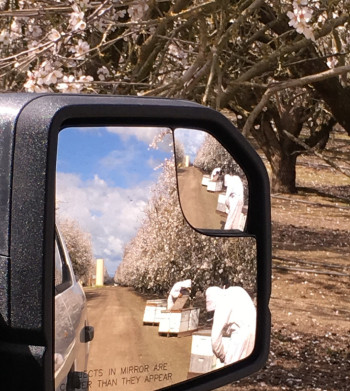
Honey bees and pollinators are essential to productive agricultural systems — making one-third of all global food production possible.
One of the best displays of the critical role honey bees play is the annual almond bloom where approximately 1.8 million hives are brought each year to California to pollinate 80 percent of the world’s almonds.
A member of the Coalition shared these photos of honey bees hard at work — underscoring the vital link honey bees provide in our food supply chain as well as the importance of the Coalition’s work.
Updated Varroa Management Guide
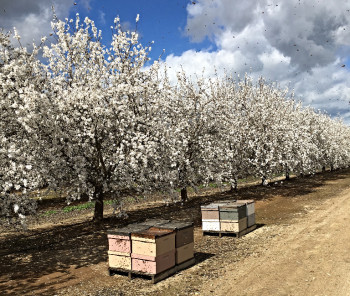
In an effort to ensure beekeepers have the best information available, the Coalition continues to update the Varroa Management Guide. Recent additions and revisions to the guide — available at www.honeybeehealthcoalition.org/varroa — includes updates regarding:
- Apivar
- Mite Away Quick Strips
- How the guide lists active ingredients versus product names
- Additional important safety information
